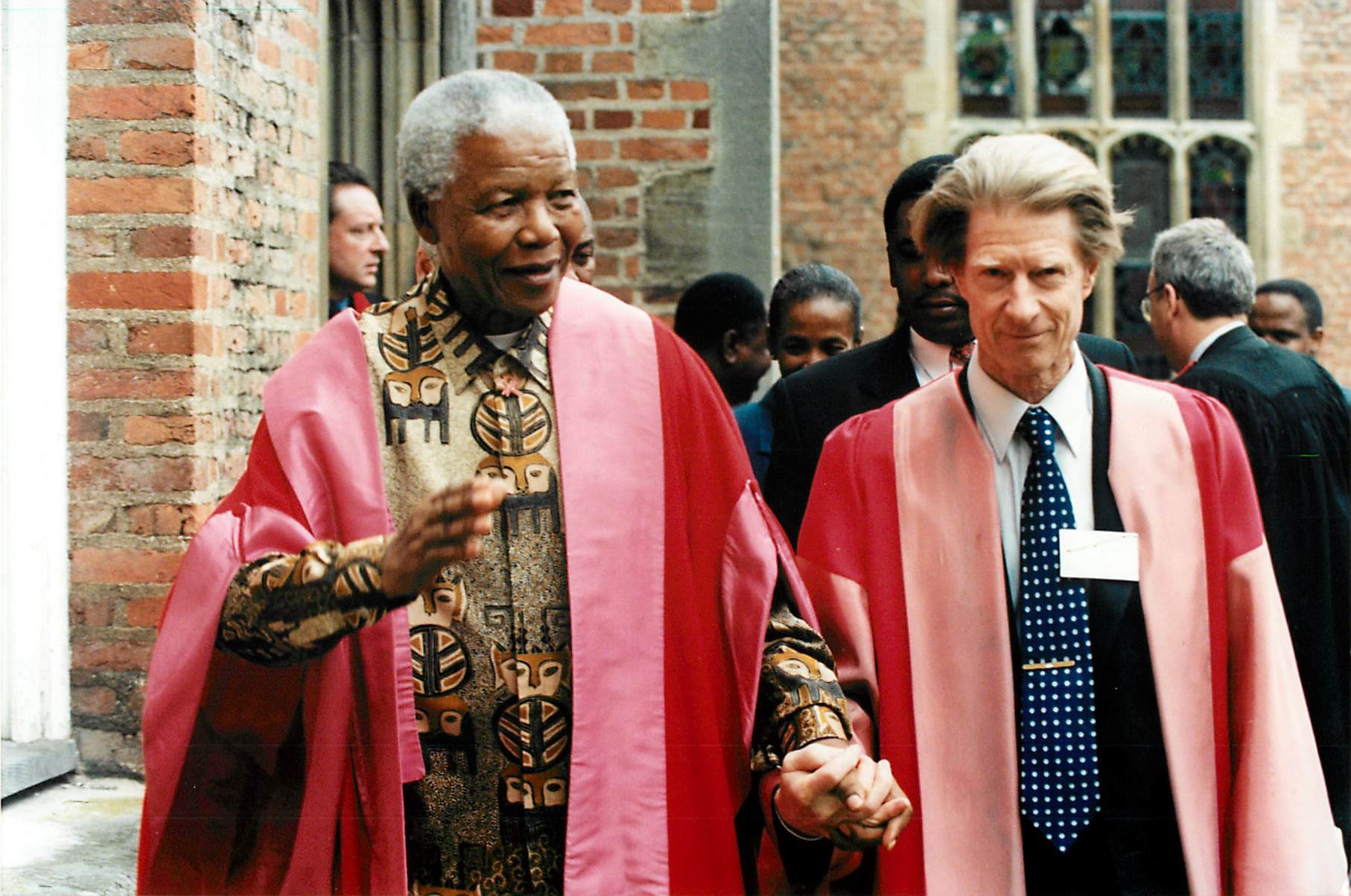News
Professor Sir John Gurdon FRS (1933-2025)
Magdalene College is deeply saddened to announce the death of Professor Sir John Gurdon FRS, who served as Master of the College from 1995 to 2002.
Born in 1933, Sir John was educated at Eton and Christ Church, Oxford, where he gained First Class Honours in Zoology. As a young researcher, he achieved international recognition for pioneering nuclear transfer experiments that demonstrated that the nucleus of a differentiated cell retains the genetic information necessary to develop into a complete organism. This discovery laid the foundation for modern developmental and stem cell biology.
Following appointments in Oxford and the United States, Sir John joined the Medical Research Council Laboratory of Molecular Biology in Cambridge in 1972 and later became the John Humphrey Plummer Professor of Cell Biology in the Department of Zoology. His research combined technical precision with great imagination and shaped biological understanding for generations of scientists.
In 2012, Sir John was awarded the Nobel Prize for his groundbreaking research on cell differentiation, the process by which a cell transforms from one type into another. In a landmark 1962 experiment, he replaced the nucleus (which contains DNA) of a frog’s egg with that of a mature intestinal cell. Remarkably, the egg developed into a normal tadpole. This demonstrated that the genetic material in a specialised cell remains complete and capable of guiding the development of an entire organism. Prior to John’s discovery, scientists believed that cell differentiation was irreversible. His work laid the foundation for modern stem cell biology and regenerative medicine. This recognition marked the culmination of decades of pioneering work that transformed approaches to regenerative medicine and deepened understanding of genetic potential within differentiated cells.
Elected a Fellow of the Royal Society at the age of 37, Sir John received many international distinctions, including the Royal Medal, the Emperor Hirohito Prize for Biology, and the Wolf Prize for Medicine. Beyond his scientific achievements, he was known for his modesty, kindness, and commitment to academic life.

During his time as Master, Sir John brought wisdom, warmth, and a deep belief in the value of collegiate life. He led the College with generosity of spirit and a genuine interest in the lives of students, Fellows, and staff. His approach combined intellectual distinction with kindness and a quiet sense of humour that made him a much-admired and deeply respected figure within the community.
The Master of Magdalene, Sir Christopher Greenwood said:
“Sir John Gurdon was one of Britain’s most distinguished scholars. A Nobel laureate with a remarkable record of discoveries in the field of science, he was also a great Master under whose leadership the College’s academic record underwent marked improvement. He will be greatly missed by the whole College community. Our thoughts are very much with his family at this time.”
Sir John is fondly remembered as a distinguished and gracious Master who strengthened the sense of fellowship and continuity at Magdalene. He will be greatly missed by all who knew him. The College extends its heartfelt condolences to Lady Gurdon and the family.